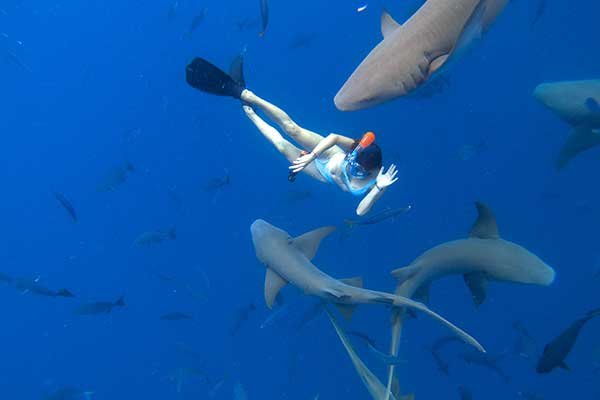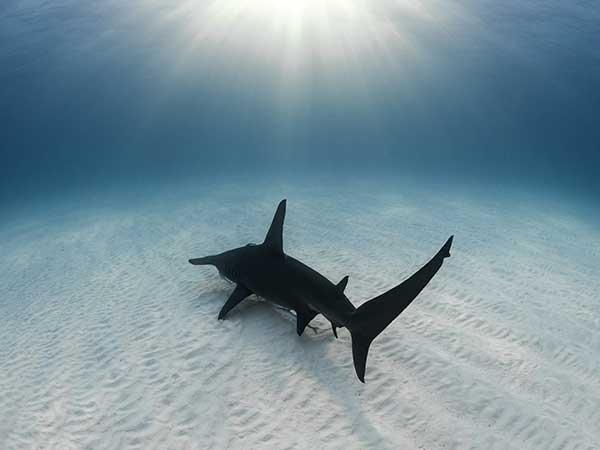It is estimated that 100 million sharks are killed by humans every year, that is about 200 sharks
per minute, 3 sharks a second. Humans are driving sharks to the brink of extinction at
unsustainable rates. By removing sharks from the ocean we threaten a much wider diversity of
life.
Our oceans need sharks, they are an integral part of the ecosystem, they directly affect the
food web and help maintain a healthy ocean ecosystem. For instance, without sharks’ turtles do
not move around as much and overgraze in a few locations which quickly destroys these
important habitats for many fish, shellfish, and birds. Without sharks, there is an increase of
smaller fish that prey on herbivorous fish that graze on algae. With an overgrowth of algae on
coral reefs coral growth and biodiversity decrease the resilience of the reef. Sharks help
support healthy seagrass meadows by preventing overgrazing and therefore play an important
role in the carbon cycle. Seagrass absorbs lots of carbon preventing greenhouse gases from the
atmosphere. And sharks help eliminate sick and unhealthy fish from ocean populations, they
prey on weaker animals which in turn ensures that the ones that survive and reproduce are the
stronger and more healthy fish.
Shark finning is decimating the shark population. This gruesome practice of cutting off the
shark’s fins and throwing the live animal back into the sea where it dies a slow and painful
death. The demand for the status symbol of shark fin soup is driving this craze and the ripple
effects are impacting all areas of the ocean. With their slow growth and low reproductive rates,
sharks are highly susceptible to extinction, and it is difficult for many shark species to replenish
their populations as quickly as they are being diminished. Many species are currently in danger
and most have populations that are vulnerable.
How you can help:
- Never consume shark fin soup
- Sign petitions to ban the shark fin trade
- Don’t buy shark cartilage, liver oil, teeth, or jaws
- Make sure all seafood you consume is sustainably caught
- Choose reputable and responsible eco-tour operators
- Educate others on protecting sharks
Sharks are graceful and beautiful creatures, if you are lucky enough to see them it means you
are in a healthy part of the ocean.

